Former NSA Whistle-Blower: Don’t Go to the Cops
Thomas Drake, one of the few government whistle-blowers of the Bush and Obama years to stave off prosecution, explains why people like him should avoid official channels when disclosing classified information.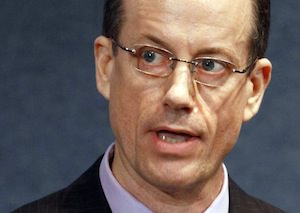
Thomas Drake, one of the few government whistle-blowers of the Bush and Obama years to stave off prosecution, explains why people like him should avoid official channels when disclosing classified information.
Drake was a former spy with the National Security Agency who helped expose earlier iterations of the government’s attempt to gain unrestricted access to Americans’ telephone and Internet data. Obama prosecutors lobbed 10 charges at him, partly under the U.S. Espionage Act, claiming that he lied to officials, obstructed justice and withheld intelligence information. Drake’s defenders countered that he was being persecuted for challenging the NSA’s data analysis program Trailblazer Project.
He escaped the original charges and rejected several deals, saying he refused to “plea bargain with the truth,” and eventually pleaded guilty to the misdemeanor of unauthorized use of official computers.
In an article in The Guardian on Wednesday, Drake said he recognized himself in the actions and commitment of the latest NSA whistle-blower, Edward Snowden, who, Drake says, has revealed only “the tip of the iceberg” of the government’s surveillance operations.
Aside from the details of title and other specifics, little that Snowden disclosed is new, Drake wrote. Snowden has rather confirmed in unprecedented clarity what those following U.S. intelligence operations from the outside have gotten glimpses of over the past decade. Although the legality of those activities was questionable a few years ago, officials today balk at the suggestion that their latest manifestations break the law. “The difference between what the Bush administration was doing in 2001, right after 9/11, and what the Obama administration is doing today is that the system is now under the cover and color of law,” Drake pointed out.
As laws are written and rewritten by the changing faces of those in power, their legitimacy is not assured. When he made his disclosures, Drake believed the law would function. He knows better today. He noted that he “differed as a whistleblower to Snowden only in this respect: in accordance with the Intelligence Community Whistleblower Protection Act, I took my concerns up within the chain of command, to the very highest levels at the NSA, and then to Congress and the Department of Defense. I understand why Snowden has taken his course of action, because he’s been following this for years: he’s seen what’s happened to other whistleblowers like me.”
“By following protocol,” Drake continued, “you get flagged — just for raising issues. You’re identified as someone they don’t like, someone not to be trusted. I was exposed early on because I was a material witness for two 9/11 congressional investigations. In closed testimony, I told them everything I knew — about [NSA program] Stellar Wind, billions of dollars in fraud, waste and abuse, and the critical intelligence, which the NSA had but did not disclose to other agencies, preventing vital action against known threats. If that intelligence had been shared, it may very well have prevented 9/11.
“But as I found out later, none of the material evidence I disclosed went into the official record. It became a state secret even to give information of this kind to the 9/11 investigation.”
— Posted by Alexander Reed Kelly.
Dig, Root, GrowThomas Drake at The Guardian:
I reached a point in early 2006 when I decided I would contact a reporter. I had the same level of security clearance as Snowden. If you look at the indictment from 2010, you can see that I was accused of causing “exceptionally grave damage to US national security”. Despite allegations that I had tippy-top-secret documents, In fact, I had no classified information in my possession, and I disclosed none to the Baltimore Sun journalist during 2006 and 2007. But I got hammered: in November 2007, I was raided by a dozen armed FBI agents, when I was served with a search warrant. The nightmare had only just begun, including extensive physical and electronic surveillance.
In April 2008, in a secret meeting with the FBI, the chief prosecutor from the Department of Justice assigned to lead the prosecution said, “How would you like to spend the rest of your life in jail, Mr Drake?” – unless I co-operated with their multi-year, multimillion-dollar criminal leak investigation, launched in 2005 after the explosive New York Times article revealing for the first time the warrantless wiretapping operation. Two years later, they finally charged me with a ten felony count indictment, including five counts under the Espionage Act. I faced upwards of 35 years in prison.
In July 2011, after the government’s case had collapsed under the weight of truth, I plead to a minor misdemeanor for “exceeding authorized use of a computer” under the Computer Fraud and Abuse Act – in exchange for the DOJ dropping all ten felony counts. I received as a sentence one year’s probation and 240 hours of community service: I interviewed almost 50 veterans for the Library of Congress veterans history project. This was a rare, almost unprecedented, case of a government prosecution of a whistleblower ending in total defeat and failure.
So, the stakes for whistleblowers are incredibly high. The government has got its knives out: there’s a massive manhunt for Snowden. They will use all their resources to hunt him down and every detail of his life will be turned inside out. They’ll do everything they can to “bring him to justice” – already there are calls for the “traitor” to be “put away for life”.
This year, we’re all on shaky ground, and the need for independent journalism has never been greater. A new administration is openly attacking free press — and the stakes couldn’t be higher.
Your support is more than a donation. It helps us dig deeper into hidden truths, root out corruption and misinformation, and grow an informed, resilient community.
Independent journalism like Truthdig doesn't just report the news — it helps cultivate a better future.
Your tax-deductible gift powers fearless reporting and uncompromising analysis. Together, we can protect democracy and expose the stories that must be told.
This spring, stand with our journalists.
Dig. Root. Grow. Cultivate a better future.
Donate today.

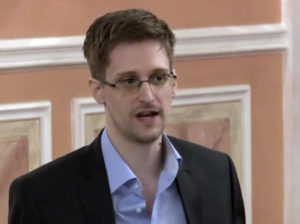
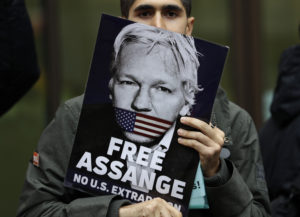
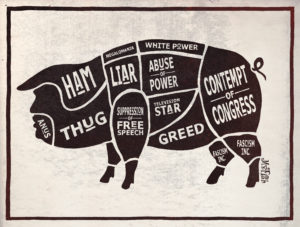
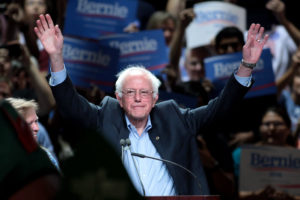
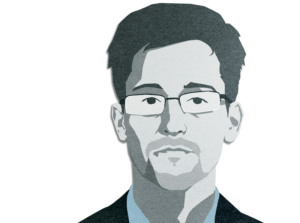
You need to be a supporter to comment.
There are currently no responses to this article.
Be the first to respond.